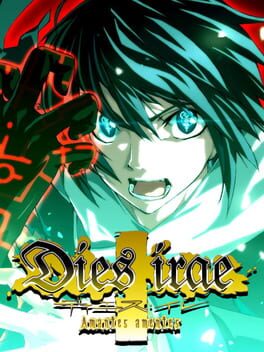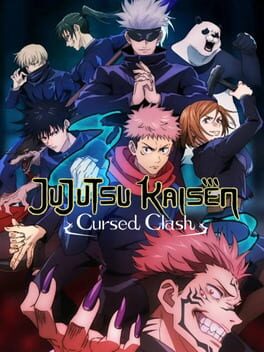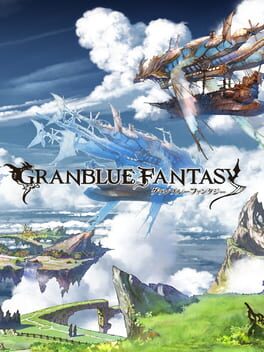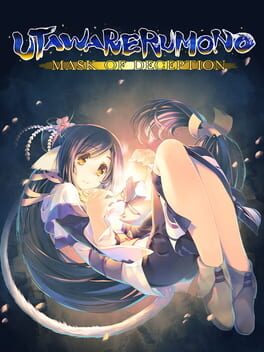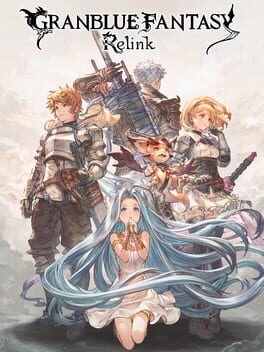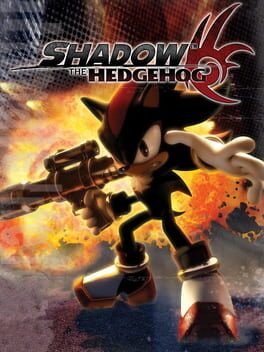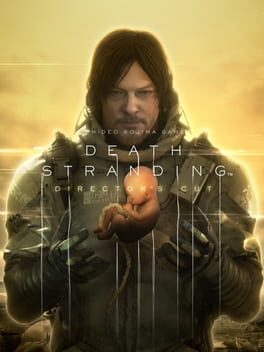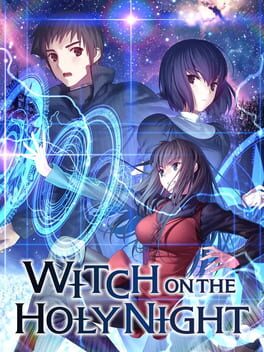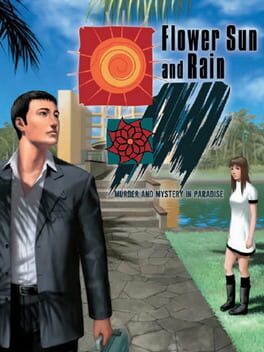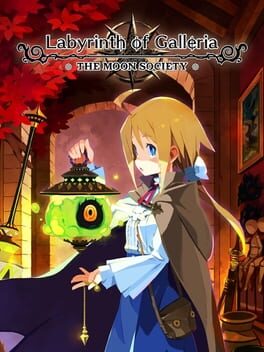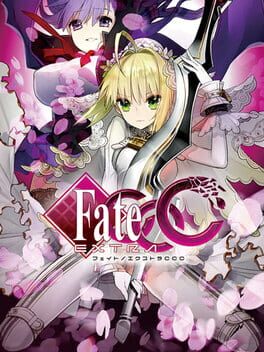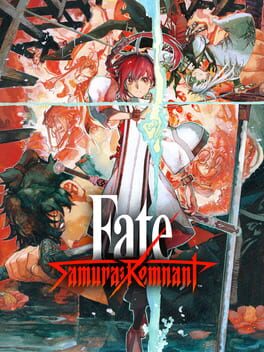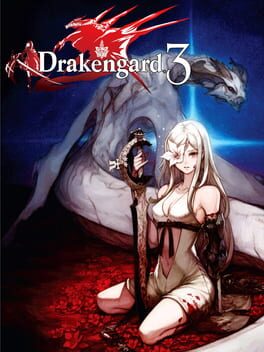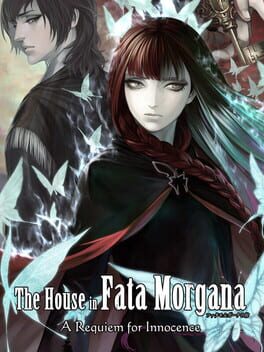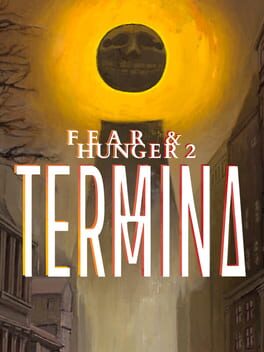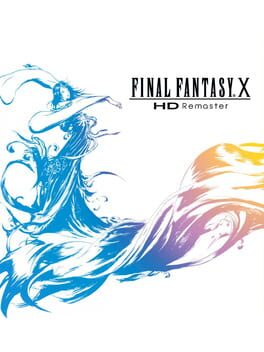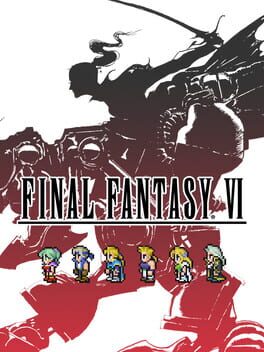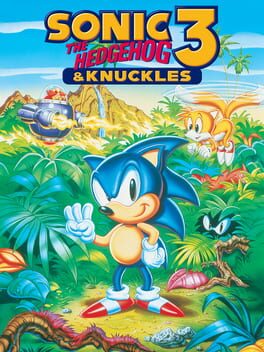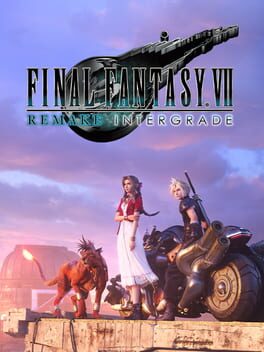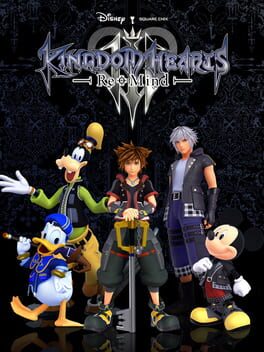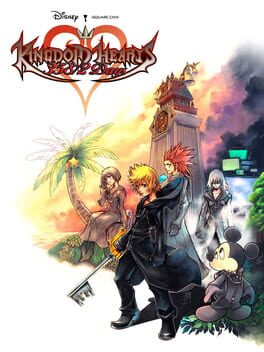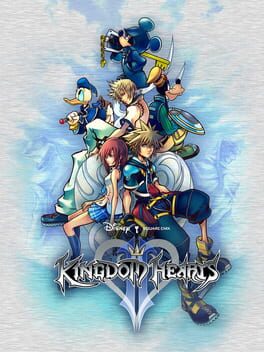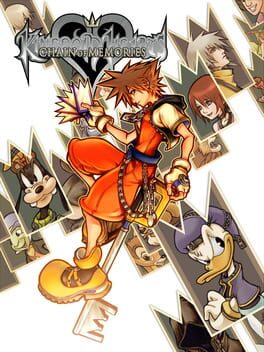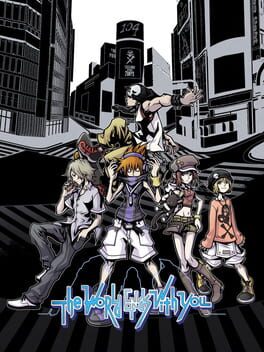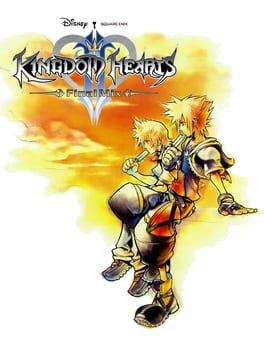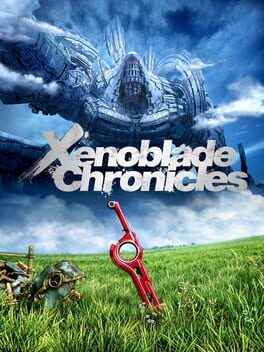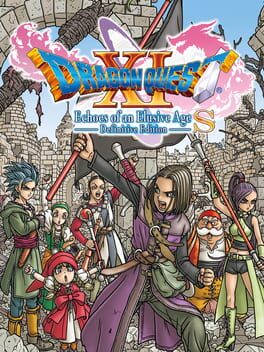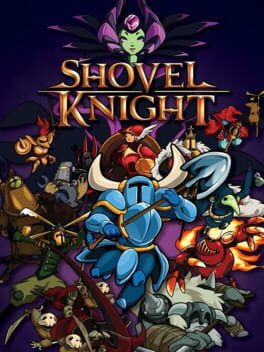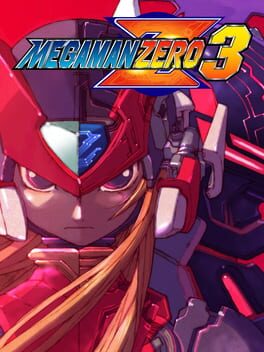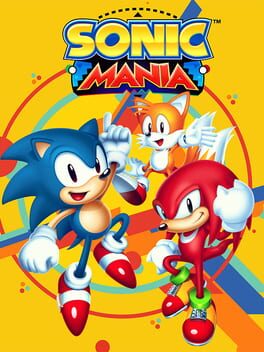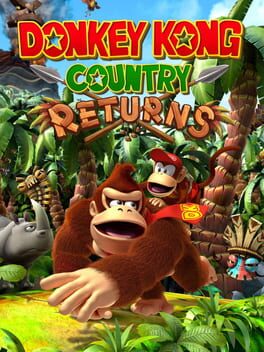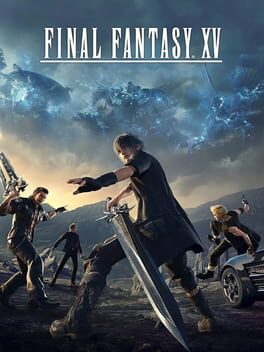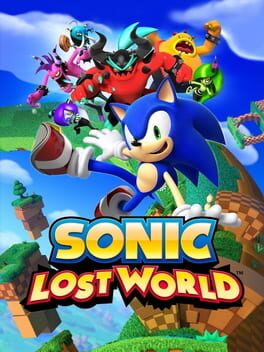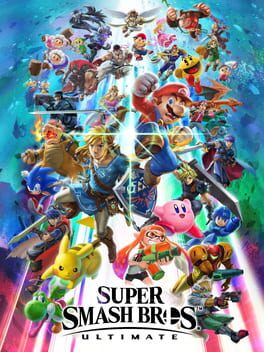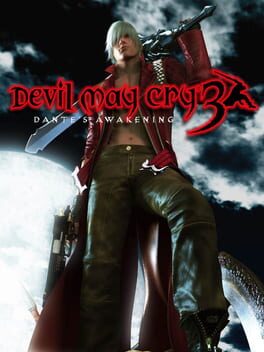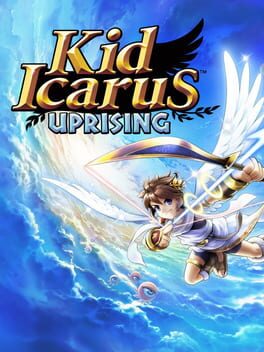NotJayden
221 reviews liked by NotJayden
Xenogears
1998
This review contains spoilers
Xenogears - as a piece of art - is incomplete. It’s a game defined by a tragic story of a development cycle that continued to never sway in its favor. Yet it’s exactly through that that Xenogears is as fascinating as it is. You can never truly separate art from its process of creation. Whether intentionally or not, it will always find itself manifested somehow in the final work. It is an unavoidable effect of the fact that creating art is projecting yourself onto a blank canvas.
The main and underlying theme of the game is that we, as people, cannot be complete. Everyone is flawed in some way. No-one is ever truly ‘whole’, and you can never truly become that. Instead, Xenogears suggests that everyone is an imperfect half, made to be complimented by another imperfect half. The main visual symbol for this theme are the statues of the one-winged angels. Two religious symbols of imperfection, existing to fill in each other’s flaws by helping each other, and being there for one another.
This theme is also explored in the game’s most iconic scene, that being Adrift at sea where Fei and Elly, upon becoming stranded together, share a moment of introspection. The introspection intentionally omits any dialogue boxes or signs of who is talking, because the scene is wholly universal to the both of them. It is what they both needed to hear at that exact time. They feel happy to help each other, both through their mutual introspection, as well as through the sharing of rations.
"It's okay to not be 'whole'. Even if you only feel partly complete, if you repeat that enough, eventually it'll be 'whole'. A part... is better than zero."
Yet I’ve always found that even stronger than any narrative symbol for the game’s themes, is the nature of the game’s release itself. Xenogears was dealt a bad hand by Square Enix. Initially rejected from being Final Fantasy VII in favor of Yoshinori Kitase’s game, and then rushed through development and faced with a difficult choice. Tetsuya Takahashi was told that he could either release disk one as a separate game, then pray for a sequel that would most likely never come to be, or rush disk two and release it in an incomplete state. He chose the latter, and while I believe he made the right choice, he has clearly been haunted by it ever since.
A game about imperfect halves ended up being forced to have half of it utterly incomplete. Disk two is extremely rough around the edges. Its balancing is all over the place, it omits most gameplay and opts instead to describe what happens over text, it never has any time to focus on anything else than what is most important. It’s a rushed effort for the sake of completing an ambitious vision that was not allowed to come to light.
Coming back to the game’s relation to FFVII, I find that both games are completely inseparable. I don’t think you can earnestly analyze one without connecting it to the other. Perhaps exactly because they were both initially supposed to be the same game, they hold a lot of connections with each other, be they narrative, thematic, or general execution. Both games are perfect companion pieces for each other, and playing both of them in close vicinity of one another sheds so much insight into the inner workings of both games. Once again, two imperfect halves filling each other in to make one another more ‘whole’.
But there is also a much more cynical way of looking at this. When asked in an interview which character Takahashi relates most to, he answered that it’s Ramsus. While at first this seems like a very funny answer, it makes a lot of sense if you consider it in the context of the game’s fate. Ramsus was created to be a perfect being. He was created by Krelian to become the contact, and to kill and replace Emperor Cain. In the end, however, Ramsus was a scrapped project in favor of Fei, who showed much more promise as the contact. Ramsus came into the world as an imperfect existence, replaced by Fei since birth, and only finds solace in the idea of killing Fei to prove his status as an ultimate existence.
Ramsus IS Xenogears, and Fei is Final Fantasy VII. And if you will humor me to take this analogy further, Krelian is Square Enix. Xenogears too was a promising concept, in the end replaced in favor of its peer. Xenogears too was forced to come in as an imperfect existence, completely and utterly overshadowed by what ultimately became the biggest JRPG to ever exist. Ramsus is a character that is essential to understanding the whole of Xenogears, because his character is Takahashi’s spite and resentment towards both Square Enix and Final Fantasy VII projecting directly onto a canvas.
I’ve often pondered the hypothetical of “What if Xenogears DID get to release as Final Fantasy VII” and wholeheartedly I believe that it would have the same amount of influence as FFVII did. That influence would just be taken in a different direction. Xenogears and FFVII share so much between each other that I do sincerely believe that the reception of XG as FFVII would not be much different from what FFVII ended up receiving. Of course, there is no way to prove this. This is a mere hypothetical decided by a lot of different factors. Maybe Xenogears wouldn’t have succeeded as FFVII, maybe it would. Regardless, the sheer idea that this beautiful game could have had the same amount of influence, is ultimately extremely tragic, and I think this is definitely something that was on Takahashi’s mind. Once again, not unlike the relationship Ramsus and Fei have over the course of the game.
Entertaining the idea of Krelian as Square Enix is admittedly a humorous one, because it’s so scathingly spiteful. Krelian doesn’t care about any of his creations. He’s willing to make anyone suffer for his own benefit, and no amount of human pain is ever too much if it means achieving his goal. He actively experiments on humans, then feeds said humans to other people. He is a mad scientist who has no qualms about robbing people of their lives and transforming them into monsters. When he scraps using Ramsus as the contact for the sake of Fei, he does it directly in front of him, and acknowledges that he’s already able to understand everything he is saying. Was this how Takahashi felt being told about the promise of Final Fantasy VII as his vision was being actively shut down? There is no way to know for sure, but I don't think it's a stretch to imagine it that way.
It’s truly no wonder that Takahashi has spent the rest of his career attempting to recapture and remake Xenogears. The Xenoblade series so actively attempts to finish the vision he never got to accomplish with Gears. Across the entire series, there are so many major parallels, often down to following the exact same plot points. Takahashi is by all means a successful creative nowadays. Xenoblade Chronicles is an enormous JRPG series, respected over the entire world. That in turn shows just how deep the scars caused by Xenogears go. Even Xenoblade 3, the big conclusion to his series, ended up being about finishing his vision for Xenogears. The parallels between N and Lacan are really not hard to spot, with some segments between the two being nigh identical.
On the other hand, I do find it important to mention that Xenoblade Chronicles 3 contains a direct reference to Final Fantasy VII. Towards the end of the game, Noah can be seen standing in front of a skyscraper much in the same composition as the iconic cover of FFVII. Referencing a game that ruined everything for him in a wholly respectful way feels really cool, and possibly means he no longer holds feelings of resentment towards the game that doomed his own project. Whether this is an empty homage or proof that Takahashi has let go, who can truly know, but I would rather believe the latter.
Xenogears is a beautiful and massive game that can be analyzed under so many lenses. There is sincerely so much to talk about with this game. With this essay, I purely just wanted to focus on what I always found to be most fascinating about it. Going back to my initial thesis: art cannot be separated from its creation process. Takahashi’s frustrations, his sadness, his anger, it all comes through in the game. Disk two is not finished, and it’s not even conventionally good, in spite of containing a lot of the game’s best scenes. But that only makes the game so much more beautiful in my eyes. Xenogears managed to become its own self serving proof of its themes.
Xenogears is incomplete. Xenogears is not whole, and will never be whole. Xenogears was robbed of its chance to be huge.
And yet, if you look at it just right, Xenogears is perfect.
The main and underlying theme of the game is that we, as people, cannot be complete. Everyone is flawed in some way. No-one is ever truly ‘whole’, and you can never truly become that. Instead, Xenogears suggests that everyone is an imperfect half, made to be complimented by another imperfect half. The main visual symbol for this theme are the statues of the one-winged angels. Two religious symbols of imperfection, existing to fill in each other’s flaws by helping each other, and being there for one another.
This theme is also explored in the game’s most iconic scene, that being Adrift at sea where Fei and Elly, upon becoming stranded together, share a moment of introspection. The introspection intentionally omits any dialogue boxes or signs of who is talking, because the scene is wholly universal to the both of them. It is what they both needed to hear at that exact time. They feel happy to help each other, both through their mutual introspection, as well as through the sharing of rations.
"It's okay to not be 'whole'. Even if you only feel partly complete, if you repeat that enough, eventually it'll be 'whole'. A part... is better than zero."
Yet I’ve always found that even stronger than any narrative symbol for the game’s themes, is the nature of the game’s release itself. Xenogears was dealt a bad hand by Square Enix. Initially rejected from being Final Fantasy VII in favor of Yoshinori Kitase’s game, and then rushed through development and faced with a difficult choice. Tetsuya Takahashi was told that he could either release disk one as a separate game, then pray for a sequel that would most likely never come to be, or rush disk two and release it in an incomplete state. He chose the latter, and while I believe he made the right choice, he has clearly been haunted by it ever since.
A game about imperfect halves ended up being forced to have half of it utterly incomplete. Disk two is extremely rough around the edges. Its balancing is all over the place, it omits most gameplay and opts instead to describe what happens over text, it never has any time to focus on anything else than what is most important. It’s a rushed effort for the sake of completing an ambitious vision that was not allowed to come to light.
Coming back to the game’s relation to FFVII, I find that both games are completely inseparable. I don’t think you can earnestly analyze one without connecting it to the other. Perhaps exactly because they were both initially supposed to be the same game, they hold a lot of connections with each other, be they narrative, thematic, or general execution. Both games are perfect companion pieces for each other, and playing both of them in close vicinity of one another sheds so much insight into the inner workings of both games. Once again, two imperfect halves filling each other in to make one another more ‘whole’.
But there is also a much more cynical way of looking at this. When asked in an interview which character Takahashi relates most to, he answered that it’s Ramsus. While at first this seems like a very funny answer, it makes a lot of sense if you consider it in the context of the game’s fate. Ramsus was created to be a perfect being. He was created by Krelian to become the contact, and to kill and replace Emperor Cain. In the end, however, Ramsus was a scrapped project in favor of Fei, who showed much more promise as the contact. Ramsus came into the world as an imperfect existence, replaced by Fei since birth, and only finds solace in the idea of killing Fei to prove his status as an ultimate existence.
Ramsus IS Xenogears, and Fei is Final Fantasy VII. And if you will humor me to take this analogy further, Krelian is Square Enix. Xenogears too was a promising concept, in the end replaced in favor of its peer. Xenogears too was forced to come in as an imperfect existence, completely and utterly overshadowed by what ultimately became the biggest JRPG to ever exist. Ramsus is a character that is essential to understanding the whole of Xenogears, because his character is Takahashi’s spite and resentment towards both Square Enix and Final Fantasy VII projecting directly onto a canvas.
I’ve often pondered the hypothetical of “What if Xenogears DID get to release as Final Fantasy VII” and wholeheartedly I believe that it would have the same amount of influence as FFVII did. That influence would just be taken in a different direction. Xenogears and FFVII share so much between each other that I do sincerely believe that the reception of XG as FFVII would not be much different from what FFVII ended up receiving. Of course, there is no way to prove this. This is a mere hypothetical decided by a lot of different factors. Maybe Xenogears wouldn’t have succeeded as FFVII, maybe it would. Regardless, the sheer idea that this beautiful game could have had the same amount of influence, is ultimately extremely tragic, and I think this is definitely something that was on Takahashi’s mind. Once again, not unlike the relationship Ramsus and Fei have over the course of the game.
Entertaining the idea of Krelian as Square Enix is admittedly a humorous one, because it’s so scathingly spiteful. Krelian doesn’t care about any of his creations. He’s willing to make anyone suffer for his own benefit, and no amount of human pain is ever too much if it means achieving his goal. He actively experiments on humans, then feeds said humans to other people. He is a mad scientist who has no qualms about robbing people of their lives and transforming them into monsters. When he scraps using Ramsus as the contact for the sake of Fei, he does it directly in front of him, and acknowledges that he’s already able to understand everything he is saying. Was this how Takahashi felt being told about the promise of Final Fantasy VII as his vision was being actively shut down? There is no way to know for sure, but I don't think it's a stretch to imagine it that way.
It’s truly no wonder that Takahashi has spent the rest of his career attempting to recapture and remake Xenogears. The Xenoblade series so actively attempts to finish the vision he never got to accomplish with Gears. Across the entire series, there are so many major parallels, often down to following the exact same plot points. Takahashi is by all means a successful creative nowadays. Xenoblade Chronicles is an enormous JRPG series, respected over the entire world. That in turn shows just how deep the scars caused by Xenogears go. Even Xenoblade 3, the big conclusion to his series, ended up being about finishing his vision for Xenogears. The parallels between N and Lacan are really not hard to spot, with some segments between the two being nigh identical.
On the other hand, I do find it important to mention that Xenoblade Chronicles 3 contains a direct reference to Final Fantasy VII. Towards the end of the game, Noah can be seen standing in front of a skyscraper much in the same composition as the iconic cover of FFVII. Referencing a game that ruined everything for him in a wholly respectful way feels really cool, and possibly means he no longer holds feelings of resentment towards the game that doomed his own project. Whether this is an empty homage or proof that Takahashi has let go, who can truly know, but I would rather believe the latter.
Xenogears is a beautiful and massive game that can be analyzed under so many lenses. There is sincerely so much to talk about with this game. With this essay, I purely just wanted to focus on what I always found to be most fascinating about it. Going back to my initial thesis: art cannot be separated from its creation process. Takahashi’s frustrations, his sadness, his anger, it all comes through in the game. Disk two is not finished, and it’s not even conventionally good, in spite of containing a lot of the game’s best scenes. But that only makes the game so much more beautiful in my eyes. Xenogears managed to become its own self serving proof of its themes.
Xenogears is incomplete. Xenogears is not whole, and will never be whole. Xenogears was robbed of its chance to be huge.
And yet, if you look at it just right, Xenogears is perfect.
Xenogears
1998
One of the main points of contention Xenogears' critics will bring up is the game being released in a state of not being entirely finished. Disc 2 being made up of mostly narration and Evangelion eps 25-26-esqe dreamlike cutscenes is a common point of contention when addressing this game's strengths and shortcomings. Just as every artistic medium is defined by its limitations, video games are no different. Even still, Xenogears is a special case. One of the main questions the game poses is what it means to be complete. Although this is mainly to be applied the main character Fei and his arc of finding his purpose by forming meaningful human connections, given the game's own status as a not fully realized vision makes the message all the more profound.
If there's one question that Xenogears has made me ask more than anything else, it's about the point when a piece of art becomes complete. How complete do you need to be to feel like a "whole"? A defining aspect of Gears is its stance on this topic: we aren't defined by our own journeys so much as how we affect the lives of each other.
Many may see disc 2 as unsatisfying, but the way I see it it's the brightest shining aspect of what makes Xenogears as good as it is. This game tells a front to back story, and I haven't even addressed the fact that I think this might be the best individual story I've ever experienced in a single video game! Not to mention the amazing character arcs of Fei and Elly. People throw around the term "this speaks to me on multiple levels" a lot but this is especially true to me with Xenogears.
As the game says, it's okay to not feel whole. Eventually as time marches on, we affect the lives of others and find meaning in the various human connections we form in our lives. And that gives us meaning just as much as any aspect of ourselves. Just as people are defined by the bonds we make, the people we meet, and the love we share, I think Xenogears has a somewhat similar journey.
A big reason I was interested in this game as I've been is because of how much I've heard it inspired modern JRPGs. With them being my favorite genre of game, combined with my fascination with works of fiction that inspired other pieces I so dearly enjoy made Xenogears a must play for me eventually. I'm so happy I did. Seeing this game's legacy retroactively makes me think this is the "complete" form of Xenogears: leaving such a legacy on the entire genre in the 24 years since its release.
Video games are a unique artform. The relationship between creator and consumer is an especially gray line here with many of the highest names in the industry describing themselves gamers just as much as game creators. Games, being as big of an art form as they are, cannot be created by one person (maybe in some instances but definitely not something like Xenogears for the purposes of this thought). Creators constantly build off one another, using aspects of someone else's creation for their own works, thus creating a living legacy for the original piece. Given how much inspiration others have found in the storytelling, character writing, and worldbuilding of Gears, I think it's safe to say it has about as impactful of a living, active legacy as just about any game in the genre.
Xenogears defines what it means to be a video game. Despite the fact that it's not a fully realized vision, you cannot argue the impact its had on everyone who's come into contact with it. Knowing this, is there really anything that truly needs to be changed about it? Although it's admittedly imperfect, flawed, whatever you want to call it, the lasting impressions it leaves on everyone give the game as much of a purpose as if it was truly finished.
So is Xenogears "whole"? I think so at least.
If there's one question that Xenogears has made me ask more than anything else, it's about the point when a piece of art becomes complete. How complete do you need to be to feel like a "whole"? A defining aspect of Gears is its stance on this topic: we aren't defined by our own journeys so much as how we affect the lives of each other.
Many may see disc 2 as unsatisfying, but the way I see it it's the brightest shining aspect of what makes Xenogears as good as it is. This game tells a front to back story, and I haven't even addressed the fact that I think this might be the best individual story I've ever experienced in a single video game! Not to mention the amazing character arcs of Fei and Elly. People throw around the term "this speaks to me on multiple levels" a lot but this is especially true to me with Xenogears.
As the game says, it's okay to not feel whole. Eventually as time marches on, we affect the lives of others and find meaning in the various human connections we form in our lives. And that gives us meaning just as much as any aspect of ourselves. Just as people are defined by the bonds we make, the people we meet, and the love we share, I think Xenogears has a somewhat similar journey.
A big reason I was interested in this game as I've been is because of how much I've heard it inspired modern JRPGs. With them being my favorite genre of game, combined with my fascination with works of fiction that inspired other pieces I so dearly enjoy made Xenogears a must play for me eventually. I'm so happy I did. Seeing this game's legacy retroactively makes me think this is the "complete" form of Xenogears: leaving such a legacy on the entire genre in the 24 years since its release.
Video games are a unique artform. The relationship between creator and consumer is an especially gray line here with many of the highest names in the industry describing themselves gamers just as much as game creators. Games, being as big of an art form as they are, cannot be created by one person (maybe in some instances but definitely not something like Xenogears for the purposes of this thought). Creators constantly build off one another, using aspects of someone else's creation for their own works, thus creating a living legacy for the original piece. Given how much inspiration others have found in the storytelling, character writing, and worldbuilding of Gears, I think it's safe to say it has about as impactful of a living, active legacy as just about any game in the genre.
Xenogears defines what it means to be a video game. Despite the fact that it's not a fully realized vision, you cannot argue the impact its had on everyone who's come into contact with it. Knowing this, is there really anything that truly needs to be changed about it? Although it's admittedly imperfect, flawed, whatever you want to call it, the lasting impressions it leaves on everyone give the game as much of a purpose as if it was truly finished.
So is Xenogears "whole"? I think so at least.
Persona 3 Reload
2024
This review contains spoilers
"Tell this asshole if he wants to learn how to (re)make my product (game), he's gotta do it my way, the right way!" - Jesse Pinkman
Persona 3 Reload is ultimately a barely passable remake of what I consider the greatest game ever made. I find a large amount of the game’s flaws go ignored among the myriad conveniences the game adds, but they make the game feel like something of a hollow shell of what it used to be.
This can be seen in every aspect of the game, from the very beginning, It’s been well documented already, but the atmosphere that was dripping from the animated cutscenes of the original is completely absent. The opening scene that disorients you, makes you feel as if nothing is as it should be, is replaced with Persona 5 cutscene.mp4. It conveys the story, and that’s all it does – it’s an extension of the same flaws that purveyed Portable. This is an unfortunate trend, as in taking a variety of elements from a game that already seemed to fundamentally misunderstand the source material, it worsens it further. It draws worthless lines from portable that are only there to compensate for a lack of visuals, adds menial things like Junpei’s perversion joke in the train scene, and most offensive, adds the Portable exclusive scene after Minato returns from the final battle. Where the original cut directly from Aigis crying to 3/5, the group now have to announce their individual reactions, turning one of the most beautifully poignant scenes in the game into something standard, dull, and thoughtless.
The modern sheen the game has feels like a coat of paint that hides Reload being a fundamentally worse, less cohesive piece of art than the original. The lighting in the dorm is ruined, draining the atmosphere from one of the most prominent and beloved locations in the game. The dramatic, perfectly framed lighting of the Nyx fight (conveyed acutely in the dancing game) is replaced with…pure green, as is thoughtlessly thrown at every other dark hour scene in the game, which betrays a total lack of thought or care, and makes the game feel like a total rush job. The Orpheus awakening scene, previously a definitive tone setter that acts as the most striking piece of imagery and sound design in the series, can now only be described as underwhelming. Most to all of the little animations the models would enact that made SEES feel so well characterised and alive are absent – and why? For all the bells and whistles the game feels like a sanded down version of what was ultimately a very small-scale game.
Most script changes feel thoughtless and for the worse, making many lines less impactful for no good reason – I can appreciate the attempt to provide a more accurate script to the Japanese version, and this works in some cases, but scenes like Akihiko’s awakening are betrayed by this. Nearly every line change here feels like it lessens the impact of the scene, with worse framing to boot. This is demonstrative of a fundamental lack of understanding of the original that can be seen in the worsening of Akihiko’s character, now adjusted and simplified to be more like his P4U counterpart, one of the most horribly flanderised depictions of a character that I’ve ever seen. I don’t know why anyone on the team thought this was a good idea. Most of the cast do not suffer as much as Akihiko does, but characters like Mitsuru do to a lesser extent, with traits being further emphasised to fit into molds that have been further solidified since the release of the original. One of my favourite scenes in the game is the meeting on the roof between Minato and Junpei, acting as a perfect capstone to one of the most well-thought-out arcs and dynamics in the original game. In reload, it gets replaced with a relatively generic feeling scene between the second-year trio, for seemingly no reason – Junpei does have a link episode that I assume was meant to compensate, but it fails entirely to capture what made that scene great and ends up totally forgettable.
Nearly all of the music is definitively worse – there are highlights, such as the new remix of changing seasons, but the majority have a strangely amateur quality, with the mixing feeling frequently unprofessional. Much of the instrumentals lose all of the impact they once had and Mass Destruction is infamous for this, but for me the worst example of it is in Iwatodai Dorm. I do admittedly love the new vocals, but they can’t save how poor the rest of it sounds. What makes this even more confusing is that all of the original songs are incredible, with Colour Your Night being one of my favourite songs in the franchise, an issue that I can only imagine was from trying to hard to be different from what was already perfect.
Lastly I’ll bring up where I think the game shines – a few key areas that I think fail to elevate the overall package. The combat is wonderfully fun and fluid, and I think theurgies are a satisfactory evolution of the showtime mechanic, but this is undercut by how ludicrously easy the game becomes with barely any effort, an issue that extends to even merciless. While the original was ultimately not a hard game, Reload becomes essentially thoughtless if you know what you’re doing. The combat animations are one of my favourite things the game does, with the way each character shifts to the other never getting tiresome, conveying their personalities and dynamics perfectly. Another is a few of the new character pieces added – I think the game massively elevates Shinjiro and Ken, the tragedy of both characters being emphasised in a way that only makes them more compelling, and Ryoji especially benefits from the greater degree of screentime Reload gives him. I’m glad the bond between him and Minato is now firmly grounded in a version other than the movies.
Personally, I think Persona 3 Reload is a disappointment, and not because it fails to be the “definitive” version many begrudged it for not being. It misunderstands, ignores and discards much of what made the original great, and it fails in aspects I could have never anticipated it would; I think the way the original uniquely excels deserves to be recognised. I still like the game overall, because the skeleton is one of my favourite things ever. But if I had to choose between Reload’s existence and a simple port of FES that bumped up the framerate, it would be an incredibly easy choice; a game that feels so deliberate against a pale imitation.
Persona 3 Reload is ultimately a barely passable remake of what I consider the greatest game ever made. I find a large amount of the game’s flaws go ignored among the myriad conveniences the game adds, but they make the game feel like something of a hollow shell of what it used to be.
This can be seen in every aspect of the game, from the very beginning, It’s been well documented already, but the atmosphere that was dripping from the animated cutscenes of the original is completely absent. The opening scene that disorients you, makes you feel as if nothing is as it should be, is replaced with Persona 5 cutscene.mp4. It conveys the story, and that’s all it does – it’s an extension of the same flaws that purveyed Portable. This is an unfortunate trend, as in taking a variety of elements from a game that already seemed to fundamentally misunderstand the source material, it worsens it further. It draws worthless lines from portable that are only there to compensate for a lack of visuals, adds menial things like Junpei’s perversion joke in the train scene, and most offensive, adds the Portable exclusive scene after Minato returns from the final battle. Where the original cut directly from Aigis crying to 3/5, the group now have to announce their individual reactions, turning one of the most beautifully poignant scenes in the game into something standard, dull, and thoughtless.
The modern sheen the game has feels like a coat of paint that hides Reload being a fundamentally worse, less cohesive piece of art than the original. The lighting in the dorm is ruined, draining the atmosphere from one of the most prominent and beloved locations in the game. The dramatic, perfectly framed lighting of the Nyx fight (conveyed acutely in the dancing game) is replaced with…pure green, as is thoughtlessly thrown at every other dark hour scene in the game, which betrays a total lack of thought or care, and makes the game feel like a total rush job. The Orpheus awakening scene, previously a definitive tone setter that acts as the most striking piece of imagery and sound design in the series, can now only be described as underwhelming. Most to all of the little animations the models would enact that made SEES feel so well characterised and alive are absent – and why? For all the bells and whistles the game feels like a sanded down version of what was ultimately a very small-scale game.
Most script changes feel thoughtless and for the worse, making many lines less impactful for no good reason – I can appreciate the attempt to provide a more accurate script to the Japanese version, and this works in some cases, but scenes like Akihiko’s awakening are betrayed by this. Nearly every line change here feels like it lessens the impact of the scene, with worse framing to boot. This is demonstrative of a fundamental lack of understanding of the original that can be seen in the worsening of Akihiko’s character, now adjusted and simplified to be more like his P4U counterpart, one of the most horribly flanderised depictions of a character that I’ve ever seen. I don’t know why anyone on the team thought this was a good idea. Most of the cast do not suffer as much as Akihiko does, but characters like Mitsuru do to a lesser extent, with traits being further emphasised to fit into molds that have been further solidified since the release of the original. One of my favourite scenes in the game is the meeting on the roof between Minato and Junpei, acting as a perfect capstone to one of the most well-thought-out arcs and dynamics in the original game. In reload, it gets replaced with a relatively generic feeling scene between the second-year trio, for seemingly no reason – Junpei does have a link episode that I assume was meant to compensate, but it fails entirely to capture what made that scene great and ends up totally forgettable.
Nearly all of the music is definitively worse – there are highlights, such as the new remix of changing seasons, but the majority have a strangely amateur quality, with the mixing feeling frequently unprofessional. Much of the instrumentals lose all of the impact they once had and Mass Destruction is infamous for this, but for me the worst example of it is in Iwatodai Dorm. I do admittedly love the new vocals, but they can’t save how poor the rest of it sounds. What makes this even more confusing is that all of the original songs are incredible, with Colour Your Night being one of my favourite songs in the franchise, an issue that I can only imagine was from trying to hard to be different from what was already perfect.
Lastly I’ll bring up where I think the game shines – a few key areas that I think fail to elevate the overall package. The combat is wonderfully fun and fluid, and I think theurgies are a satisfactory evolution of the showtime mechanic, but this is undercut by how ludicrously easy the game becomes with barely any effort, an issue that extends to even merciless. While the original was ultimately not a hard game, Reload becomes essentially thoughtless if you know what you’re doing. The combat animations are one of my favourite things the game does, with the way each character shifts to the other never getting tiresome, conveying their personalities and dynamics perfectly. Another is a few of the new character pieces added – I think the game massively elevates Shinjiro and Ken, the tragedy of both characters being emphasised in a way that only makes them more compelling, and Ryoji especially benefits from the greater degree of screentime Reload gives him. I’m glad the bond between him and Minato is now firmly grounded in a version other than the movies.
Personally, I think Persona 3 Reload is a disappointment, and not because it fails to be the “definitive” version many begrudged it for not being. It misunderstands, ignores and discards much of what made the original great, and it fails in aspects I could have never anticipated it would; I think the way the original uniquely excels deserves to be recognised. I still like the game overall, because the skeleton is one of my favourite things ever. But if I had to choose between Reload’s existence and a simple port of FES that bumped up the framerate, it would be an incredibly easy choice; a game that feels so deliberate against a pale imitation.
Granblue Fantasy
2014
I never expected any gacha to actually get me, but it appears even I can be fallible. Has an incredibly charming fantasy world that has something for basically everybody to enjoy. Starts off as a very early One Piece-y fantasy RPG adventure and allows itself to branch off into so many other directions at a scale that fills me with absolute wonder and amazement. Gameplay was kinda mind-numbing early on but the later parts really gripped me with how much variety you get in builds and team composition, though I still have a lot to learn about what the hell a grid is. Also been having a very smooth F2P experience personally, though I probably should owe a lot of that to good timing with fully diving in during the 10th Anni celebration. Cagliostro is literally me.
This review contains spoilers
I started this game thinking that it'll be hard for me to get through, as I have always had a difficult time reading visual novels. Yet it almost felt like I breezed past the game, and not once did it appear to me that I was only trying to push through the game because I wanted to finish it as soon as possible.
Even with the first few hours of the game, where it seems like there’s not much that was happening and only a few things that moved the plot, I was still having a lot of fun due to the endearing cast that bounced off each other and a carefree protagonist in Haku. But as soon as the story unravels itself and where Haku went from this laid-back guy to a person with a compelling development and a heavy burden that were entrusted to him, and with how much it changed him and those around him as they tried to navigate the rocky path that was laid down for them, it’s hard to not be enamored by it.
Right now, I wish to write a more articulate review of my thoughts about the game and the characters but hopefully as I play through MoT (idk if I’ll start it right now) I will have a more detailed review about the series.
Even with the first few hours of the game, where it seems like there’s not much that was happening and only a few things that moved the plot, I was still having a lot of fun due to the endearing cast that bounced off each other and a carefree protagonist in Haku. But as soon as the story unravels itself and where Haku went from this laid-back guy to a person with a compelling development and a heavy burden that were entrusted to him, and with how much it changed him and those around him as they tried to navigate the rocky path that was laid down for them, it’s hard to not be enamored by it.
Right now, I wish to write a more articulate review of my thoughts about the game and the characters but hopefully as I play through MoT (idk if I’ll start it right now) I will have a more detailed review about the series.
Really fantastic realization of Granblue's scope and charm in stunning detail. Has some of my favorite ARPG combat that I've ever experienced, its similarities to Xenoblade made me realize that those systems are infinitely more engaging to me with full-on action combat as opposed to auto-attacking. It definitely helps a lot that it keeps up an extremely consistent flow to its combat, never feeling like it drones on or stalls too much. I haven't tried too many of the cast yet but Zeta was an absolute blast to play with how much airtime she gets with her combos. The sense of scope is helped even further by having some of the most stunning giant bosses this side of FFXVI, each one feels bigger and grander than the last. Story's not too much to write home about, it's basically the Granblue equivalent of a Shonen anime movie, which is fine as a standalone thing but a bit disappointing since I know that Granblue's capable of really engaging and gripping narratives. This probably being a lot of peoples' first impression of the cast doesn't help since it doesn't really showcase as much of what makes them so charming and likeable as the mobage does. (Lyria and Vryn are hit by this the hardest) Even so, a lot of Granblue's charm is still completely intact in here, so I can definitely see it drawing more people further after the fact. After beating its fairly brisk main story, I wanna keep playing to see everything the game has to offer. I guess I really have been itching for another Monster Hunter-like experience since I played 4U way back. Overall fantastic game, Cygames add Vira in a future update or all of this was for nothing.
Shadow the Hedgehog
2005
Now that I’ve had a day to sit on my thoughts of the game I will make an actual non-shitpost review.
This game is a mess. I wasn’t kidding when I said this is the MGS4 of the series. An extremely ambitious, earnest, heartfelt celebration of the series that has extremely high highs but also constantly falls on its face with extremely stupid writing.
The pacing is some of the worst we’ve seen from RGG. For a game that can easily be 100+ hours long it is both too long but also too short in areas. It constantly pulls you away from the main story to do very involved mini game/sub system tutorials but then has no time in the final hours to wrap up most of the story. At least 4 of the main characters this game is about don’t show up in the final cutscene. You just have to be told about what they are doing from a mouth piece so we can wrap shit up. Kiryu is just kinda left in this weird limbo as they don’t explain what the fuck got them to this point with an achievement titles “man who reclaimed his name”. It genuinely feels like there is either an entire chapter or at least a huge segment of one missing from the end. One of the main villains just stops showing up for 10+ hours only to be seen again in a cut away and is completely unrecognizable for at least another few hours. They then try to do the coin locker scene again with them and it feels completely unearned because they haven’t done anything. The two main villains you do fight are extremely forgettable and underwhelming. One is given what you’d imagine to be a super important connection to Ichiban but it never comes up. The two share a single cutscene at the start of the game and that’s it. Why was it even a plot point to begin with then???? So many plot threads just go no where or are left extremely unsatisfying as they hand wave them away so it can’t be viewed as “a plot hole”. I seriously think how they structure their stories needs to change because I don’t think the Yakuza writing formula they’ve had for 2 decades translates to a 100 hour JRPG. Imo the best way to enjoy the main story of these games is when you can just progress the plot freely and not be bogged down by side content or busy work. I usually save that stuff for premium adventure so the story isn’t so “start and stop”. But you can’t do that in these games because of the rpg leveling and just how the story constantly blocks you to do other shit I am currently not interested in. No RGG I don’t give a fuck about your Pokémon clone and it’s 30 minute+ forced tutorial I just want to get on with chapter 4 please.
Most of the cast has nothing to do in this game which would be fine if they didn’t force them to have boring ass drink links you need to do to make them objectively better in gameplay.
The gameplay needs massive changes going forward because Jesus Christ was I sick of the multiple grinds it imposes. The long battles they do in this game are terrible. In previous entries you’d have a long gauntlet where you’d have to fight to a location and they do this here but they constantly make you take the most out of the way route and block off better ones with excuses like “there are dudes over there!” Only to send you down an alley with 7 fights. If 9 does the same formula 8 repeated from 7 I might just drop the series. I do not want to go back to scrounging for money and being locked out of jobs till chapter 5 again. I do not want to have to do massive material grinds for good gear. I do not want to have 80% of the moves you get to be fucking useless because they aren’t an AOE and don’t deal elemental damage.
Highlights of this game is everything they do with Kiryu outside of the final chapter. Life links are overall goated outside of some implications of how no one reacting to Kiryu being alive despite you are only able to see them after Kiryu is broadcasted on national news to be alive.
There is honestly too much to talk about with this game So I’m just gonna end it by saying this: I’ll look back on the good in this game as some of the best but I never want to replay this game ever again. Also this game only makes Gaiden look even dumber and further cements it at as a $50 scam. Yokoyama fucking lied Hanawa is not important and he fucking knew that.
Mark my words that this game while currently being hailed as the best game in the series, that its perfect and other things like that will be looked back on a lot more negatively once the honeymoon phase is over, once hypebeasts move onto the next thing, once people won't freakout if you have anything negative to say about it. It won't be a hot take or "being contrarian" to think that the game is mid, super front loaded and falls apart in the end. It's fine if you do think its perfect and its your favorite game or whatever but the amount of people who lose their shit when you have anything negative to say about this game or gaiden is seriously annoying.
This game also made me get into a car accident so fuck it lol
This game is a mess. I wasn’t kidding when I said this is the MGS4 of the series. An extremely ambitious, earnest, heartfelt celebration of the series that has extremely high highs but also constantly falls on its face with extremely stupid writing.
The pacing is some of the worst we’ve seen from RGG. For a game that can easily be 100+ hours long it is both too long but also too short in areas. It constantly pulls you away from the main story to do very involved mini game/sub system tutorials but then has no time in the final hours to wrap up most of the story. At least 4 of the main characters this game is about don’t show up in the final cutscene. You just have to be told about what they are doing from a mouth piece so we can wrap shit up. Kiryu is just kinda left in this weird limbo as they don’t explain what the fuck got them to this point with an achievement titles “man who reclaimed his name”. It genuinely feels like there is either an entire chapter or at least a huge segment of one missing from the end. One of the main villains just stops showing up for 10+ hours only to be seen again in a cut away and is completely unrecognizable for at least another few hours. They then try to do the coin locker scene again with them and it feels completely unearned because they haven’t done anything. The two main villains you do fight are extremely forgettable and underwhelming. One is given what you’d imagine to be a super important connection to Ichiban but it never comes up. The two share a single cutscene at the start of the game and that’s it. Why was it even a plot point to begin with then???? So many plot threads just go no where or are left extremely unsatisfying as they hand wave them away so it can’t be viewed as “a plot hole”. I seriously think how they structure their stories needs to change because I don’t think the Yakuza writing formula they’ve had for 2 decades translates to a 100 hour JRPG. Imo the best way to enjoy the main story of these games is when you can just progress the plot freely and not be bogged down by side content or busy work. I usually save that stuff for premium adventure so the story isn’t so “start and stop”. But you can’t do that in these games because of the rpg leveling and just how the story constantly blocks you to do other shit I am currently not interested in. No RGG I don’t give a fuck about your Pokémon clone and it’s 30 minute+ forced tutorial I just want to get on with chapter 4 please.
Most of the cast has nothing to do in this game which would be fine if they didn’t force them to have boring ass drink links you need to do to make them objectively better in gameplay.
The gameplay needs massive changes going forward because Jesus Christ was I sick of the multiple grinds it imposes. The long battles they do in this game are terrible. In previous entries you’d have a long gauntlet where you’d have to fight to a location and they do this here but they constantly make you take the most out of the way route and block off better ones with excuses like “there are dudes over there!” Only to send you down an alley with 7 fights. If 9 does the same formula 8 repeated from 7 I might just drop the series. I do not want to go back to scrounging for money and being locked out of jobs till chapter 5 again. I do not want to have to do massive material grinds for good gear. I do not want to have 80% of the moves you get to be fucking useless because they aren’t an AOE and don’t deal elemental damage.
Highlights of this game is everything they do with Kiryu outside of the final chapter. Life links are overall goated outside of some implications of how no one reacting to Kiryu being alive despite you are only able to see them after Kiryu is broadcasted on national news to be alive.
There is honestly too much to talk about with this game So I’m just gonna end it by saying this: I’ll look back on the good in this game as some of the best but I never want to replay this game ever again. Also this game only makes Gaiden look even dumber and further cements it at as a $50 scam. Yokoyama fucking lied Hanawa is not important and he fucking knew that.
Mark my words that this game while currently being hailed as the best game in the series, that its perfect and other things like that will be looked back on a lot more negatively once the honeymoon phase is over, once hypebeasts move onto the next thing, once people won't freakout if you have anything negative to say about it. It won't be a hot take or "being contrarian" to think that the game is mid, super front loaded and falls apart in the end. It's fine if you do think its perfect and its your favorite game or whatever but the amount of people who lose their shit when you have anything negative to say about this game or gaiden is seriously annoying.
This game also made me get into a car accident so fuck it lol
18 lists liked by NotJayden
by Dotizera |
13 Games
by EldenRingSwitch |
30 Games
by HiTheHello |
36 Games
by FumeUGS |
42 Games
by SiriusStarlight |
14 Games
by SiriusStarlight |
49 Games
by SiriusStarlight |
97 Games
by SiriusStarlight |
3 Games
by SiriusStarlight |
26 Games


